- Home
- Multimedia
- Photo Gallery
- Lithium: The demand for the world's critical mineral is set to soar
Lithium: The demand for the world's critical mineral is set to soar
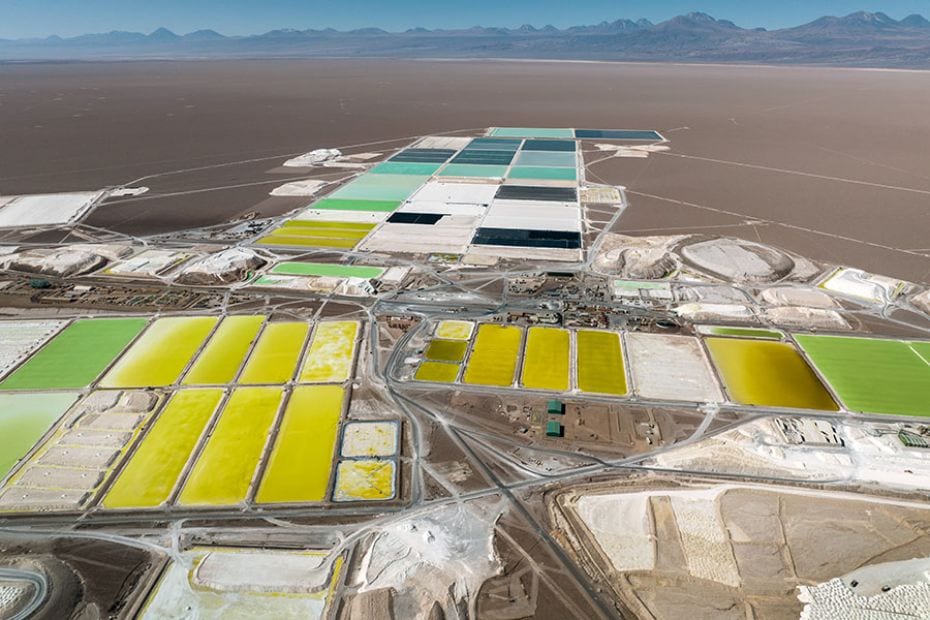
Image by : John Moore/Getty Images
In this aerial view, brine pools containing lithium carbonate and mounds of salt stretch through a lithium mine in the Atacama Desert, Chile. Natural brine is pumped from under vast salt flats to a series of evaporation ponds. During an 18-month process, natural brine is moved through evaporation ponds, eventually turning from dark blue to bright yellow with a lithium concentration of 6 percent. It is then trucked, processed into battery-grade lithium carbonate powder, and shipped internationally. According to US Geological Survey, Australia (61,000 tonnes) and Chile (39,000 tonnes) have emerged as top lithium producers, accounting for nearly 77 percent of the global production in 2022.
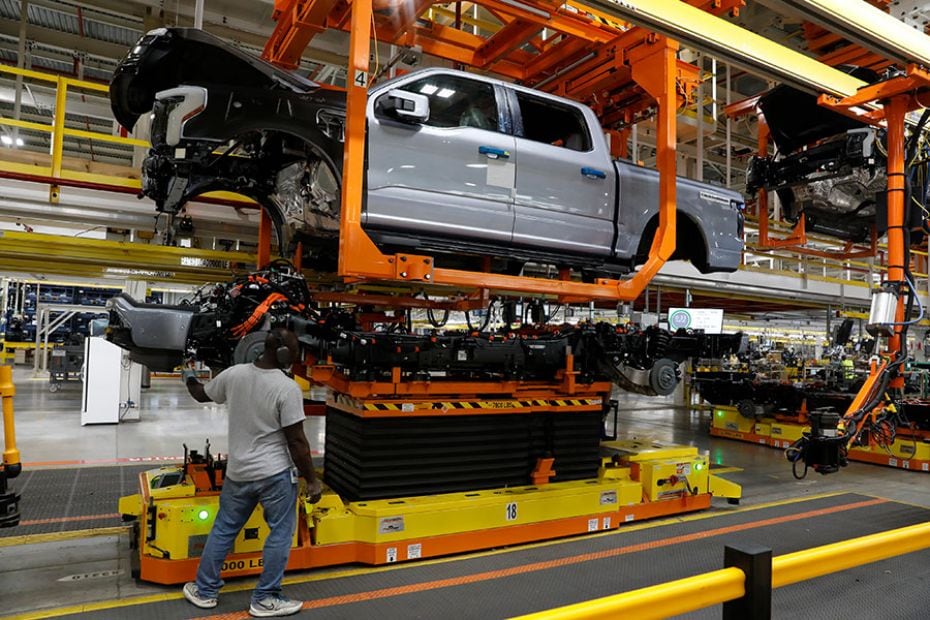
Image by : JEFF KOWALSKY / AFP
A battery-powered F-150 Lightning truck under production at Ford Motor Co. Rouge Electric Vehicle Center in Dearborn, Michigan, on September 20, 2022.
Lithium's availability, limited to a few geographic locations on earth, has led to supply chain vulnerabilities and even disruption of supplies. Even established mining companies are grappling with demand for lithium as EV sales soar. As a result, US and European carmakers, ramping up their assembly lines in places like Michigan, Tennessee and Germany, are scrambling to sign exclusive access to lithium in smaller mines in the world before others.
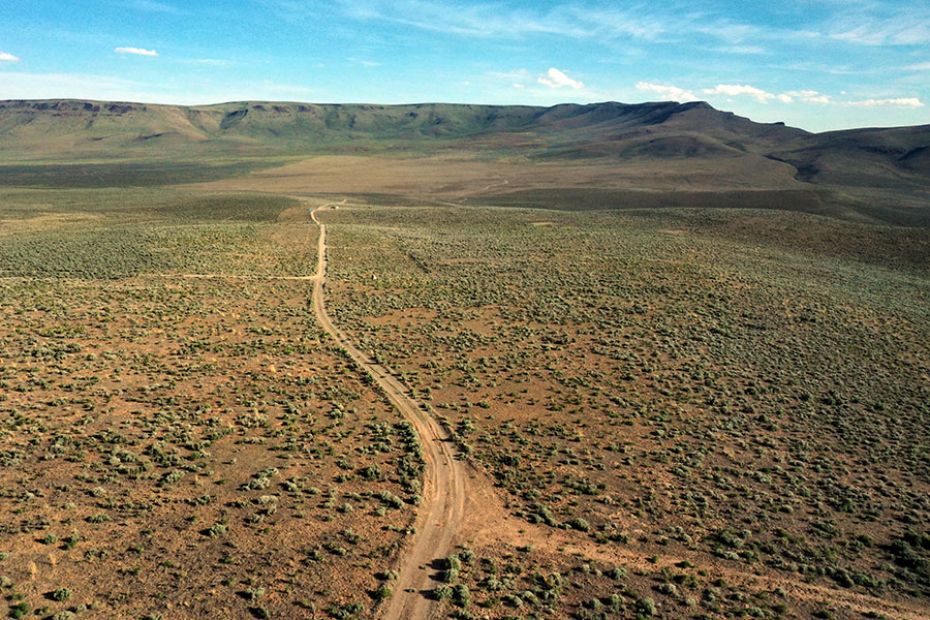
Image by : Carolyn Cole / LA Times via Getty Images
General Motors is investing $650 million in Lithium Americas, a company based in Vancouver, British Columbia, to develop the remote Thacker Pass mine (above) in Nevada. It's estimated that by 2034, the US alone will need 500,000 metric tons of unrefined lithium a year for EV production. Bypassing traditional suppliers, the US and European carmakers are making direct deals, committing billions of dollars to lithium mining companies. Earlier, car makers relied on battery suppliers to procure lithium and other raw materials.
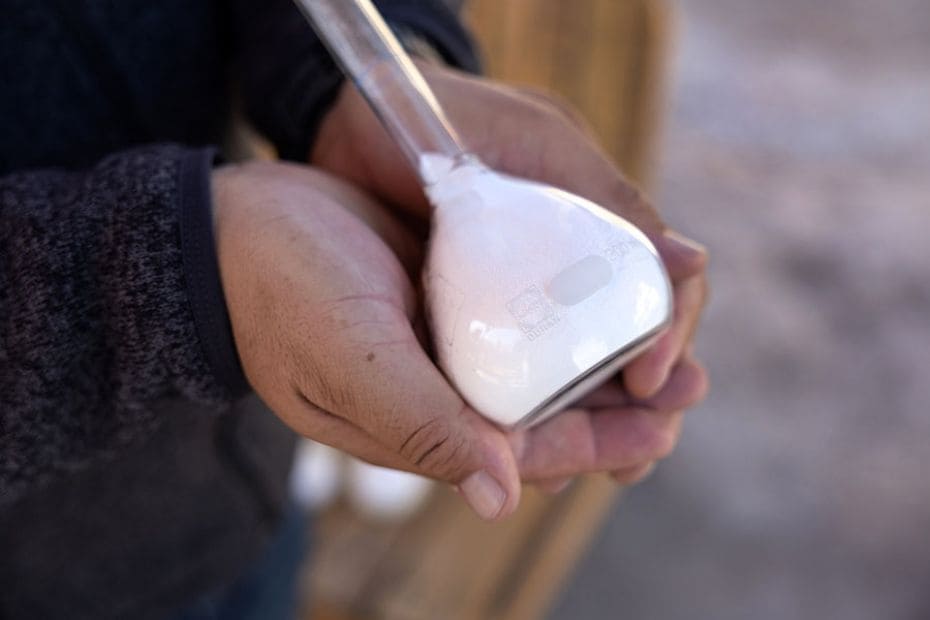
Image by : John Moore/Getty Images
A file photo of a bottle of processed lithium carbonate—a main component in manufacturing batteries. Turning mined lithium ore into the purer lithium carbonate or lithium hydroxide needed for batteries is an expensive and complex operation. China controls at least 65 percent of the world's lithium processing and refining capacity, giving it a stranglehold on the battery market. However, its access to lithium deposits only accounts for less than 25 percent of the world's lithium resources.
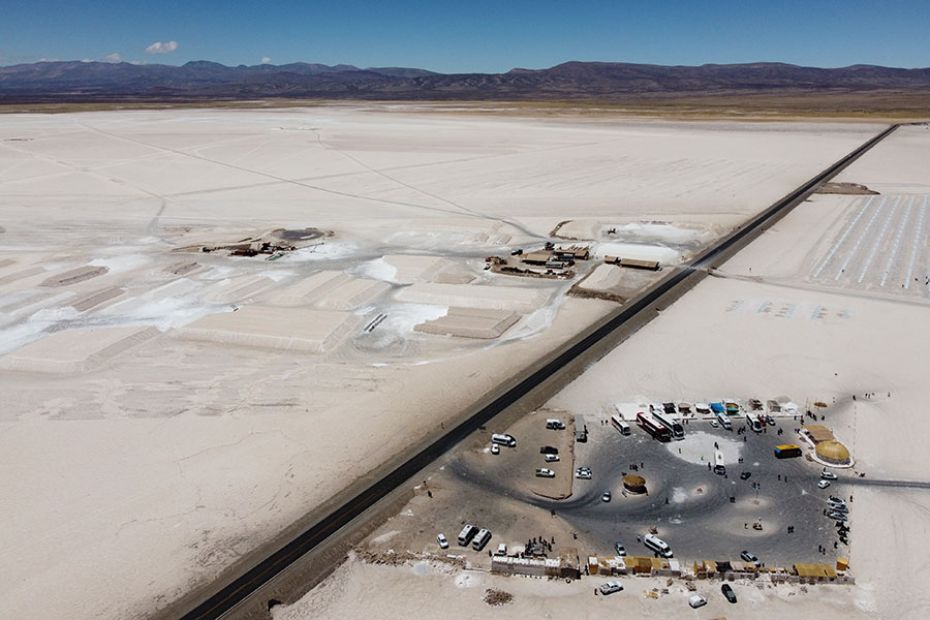
Image by : Martín SILVA / AFP
Aerial view of a mining site and a parking area in the Salinas Grandes in Jujuy, Argentina. China is trying to increase its access to lithium. Chinese mining companies—Ganfeng, Suzhou TA&A, Sinomine and BYD—have all taken steps to acquire lithium mining rights in South America and Africa. Ganfeng Lithium, which supplies Tesla, acquired the mining group Lithea, giving it rights to two lithium salt lake brines in Argentina.
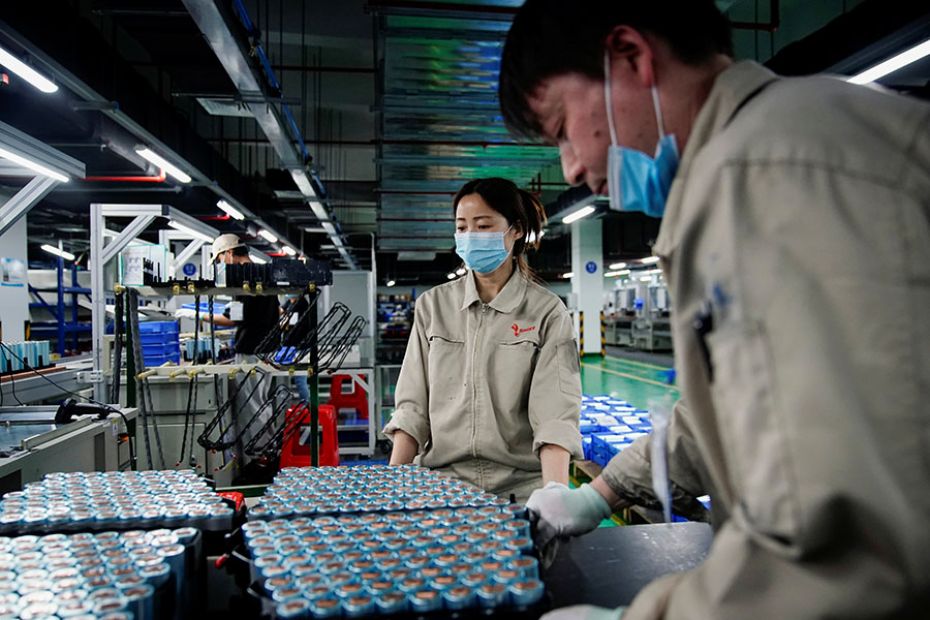
Image by : Aly Song / Reuters
Employees work on the production line of an electric vehicle battery manufacturing unit in Hefei, Anhui Province, China. Hundreds of gigafactories across China are churning out millions of EV batteries for both the domestic market and for foreign carmakers like BMW, Volkswagen, and Tesla. Six of the ten biggest EV battery producers are based in China—one of them, CATL, makes three out of every ten EV batteries globally. That's made the rest of the world wary, and the United States and Europe are now scrambling to wean themselves off Chinese lithium before it's too late.

Image by : Radoslaw Czajkowski/picture alliance via Getty Images
Miners and supporters march with flags and mining helmets during a rally supporting the left-leaning Bolivian government. Bolivia and Argentina have the largest lithium reserves, at 21 million tonnes and 20 million tonnes, respectively. However, there are risks in dealing with mining businesses in politically unstable countries with weak environmental protections. Local support is one of the challenges. Chinese mining company BYD was awarded a $61m contract in January 2022 to extract up to 80,000 tonnes of lithium in Chile. However, two days later, a Chilean appeal court ordered a suspension of the deal as local indigenous communities filed protection appeals for violation of the right to live in an environment free of contamination.
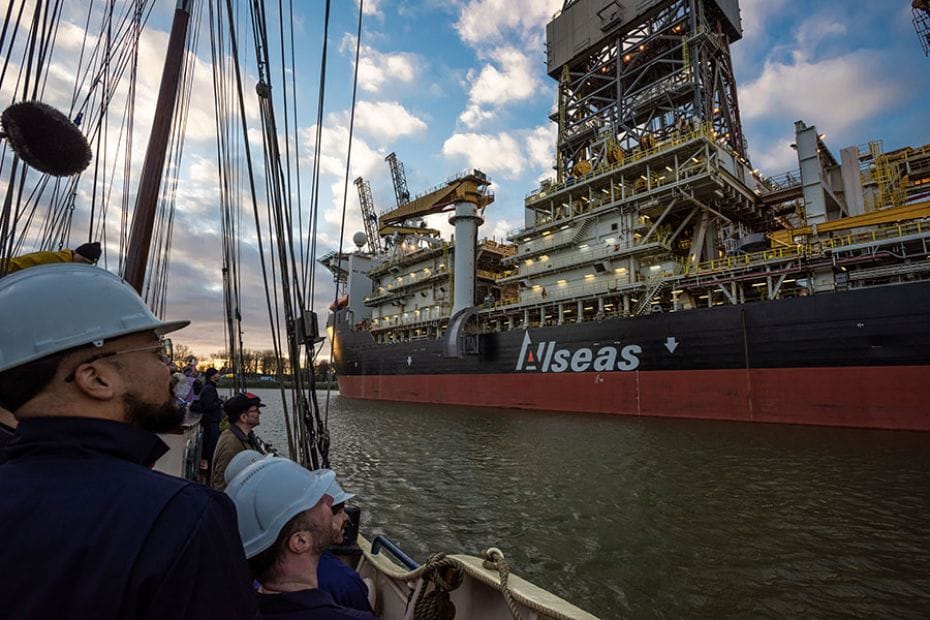
Image by : Charles M. Vella/SOPA/LightRocket via Getty Images
The deep-sea mining vessel Hidden Gem near the Clarion Clipperton Fracture Zone in the Pacific Ocean. Deep-sea mining is the process of retrieving mineral deposits from the ocean below 200 metres -the deep seabed, which covers around two-thirds of the total seafloor. The International Seabed Authority, a United Nations body, struggles to get its members to agree on a framework of regulations for extracting minerals, given that the environmental impacts are hard to predict.
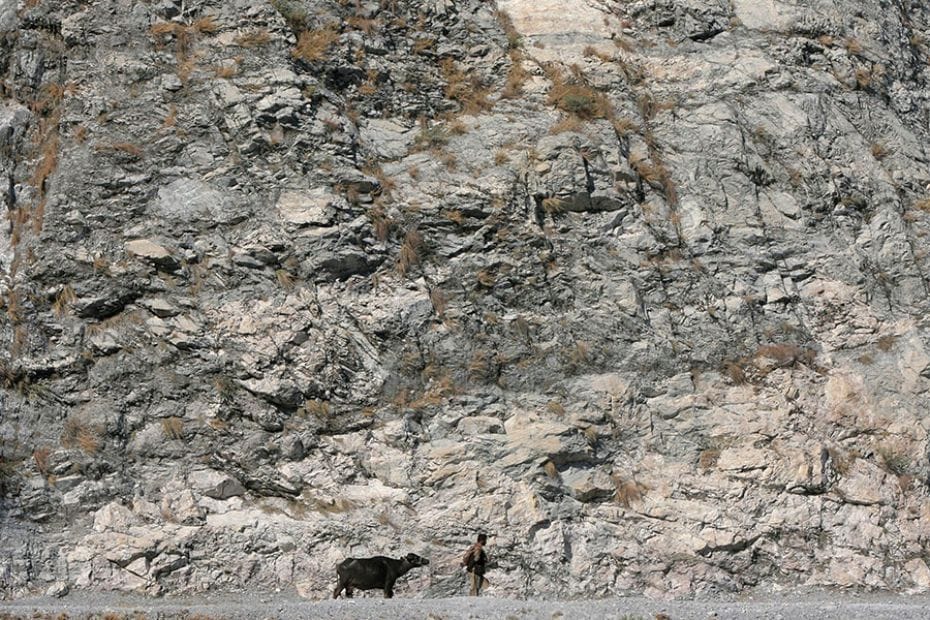
Image by : Mukesh Gupta / Reuters
A file photo of Reasi, 75 km northwest of Jammu. Months after India found its first-ever lithium reserve of 5.9 million tonnes of lithium ore in Jammu and Kashmir's Reasi district in February this year, another reserve of the crucial mineral has been found in Rajasthan's Nagaur district. These reserves' discovery may help reduce India's dependency on China for lithium. India's plan to increase EV penetration by 30 percent by 2030 relies heavily on lithium. Currently, only a little more than one percent of all vehicle sales in the country are electric.
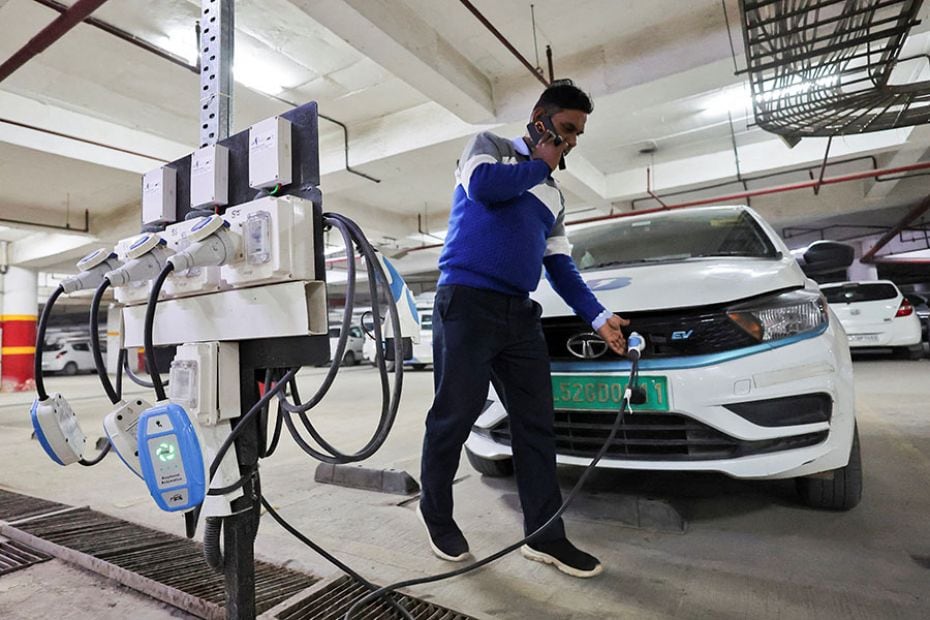
Image by : Anushree Fadnavis / Reuters
A man charges an electric vehicle at the charging hub of Indian ride-hailing BluSmart Electric Mobility in Gurugram, India, December 9, 2022. The global lithium-ion battery market was valued at $52 billion in 2022 and is estimated to reach $194 billion in 2030. The World Bank estimates that the production of minerals will need to increase by nearly 500 percent by 2050 to meet the growing demand for clean-energy technologies. Unless an entirely new type of battery chemistry is invented that eliminates the need for lithium.





